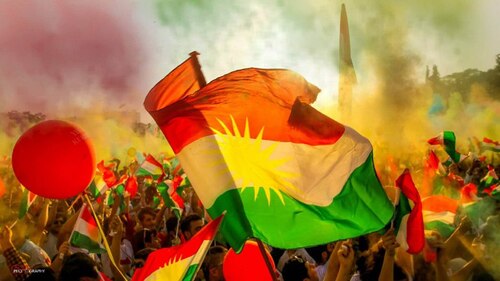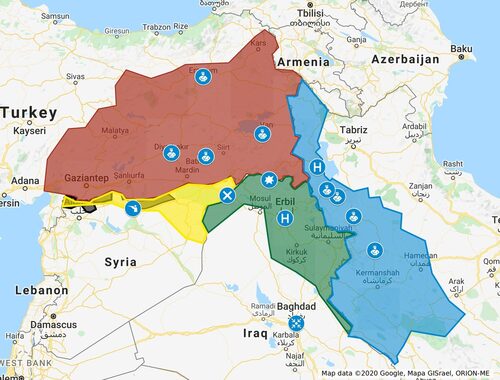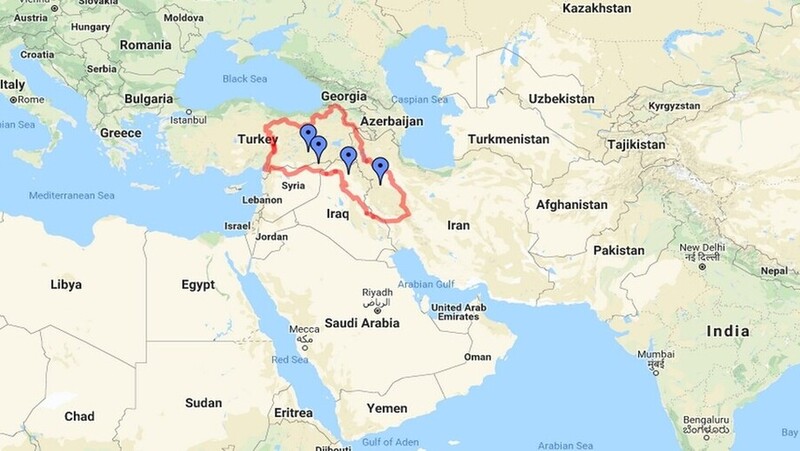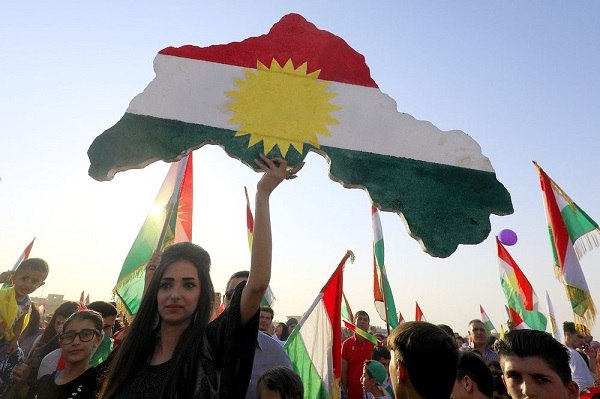Kurdistan, the Kurdish Land
Kurdistan, as a land of the Kurdish people, is an area in the Middle East and most of its citizens are Kurds. Kurdistan has been divided into four parts each of which is a part of "Iran, Turkey, Syria, and Iraq" now, and some of its parts are under Armenia and Azerbaijan control.
Determining the borders of Kurdistan is one of the most difficult jobs because those countries that are dominating Kurdistan do not consider it as a geographical or national unit, instead they mostly call it "the Kurdish region".
Politically, the South part of Kurdistan is the only part that is known as a federal state in Iraq internationally and it covers half of the southern land and the other half is still under Iraq's authority. And some parts of the West part of Kurdistan are under the Kurdish forces' control.
On the other hand, Kurds in Iran are known as minorities officially but they are not allowed to educate with their own language or can enjoy any other national rights.

The Internationality of Kurdistan Question
The Kurdish issue has a historical and political origin and it is one of the complicated issues that has not been settled yet.
After the Ottoman Empire got defeated, the war winners signed a treaty on August 10, 1920, among themselves that is known as the "Siver" Treaty. According to 62 and 64 articles of that treaty, the autonomy of the Kurds was recognized officially in the form of political independence.
The "Siver" treaty made the Kurdish question an international issue for the first time and it recognized the legal right of the Kurdish nation to self-determination officially. Although this treaty never got implemented, however, the question of the Kurdish nation came into the political literature of the world and it turned into an international issue.
Despite the fact that the political rights of the Kurds have been violated repeatedly in their ancestral land by the powerful states and the Kurdish political parties have continually informed the international human rights organizations with evidence but the dominant states of Kurdistan have recognized the Kurdish question as an internal issue and they never have let the international organizations interfere at all.

Generally, the following points are the reasons for the Kurdish question to be an international issue:
1. Not solving the Kurdish issue and its security impacts on the region.
2. Not solving the Kurdish question and violation of human rights.
3. The phenomena of refugee and migration due to political and security pressures in Kurdistan.
4. The intervention of the United Nations in the Kurdish issue in 1991 and the adoption of draft 688 of the Council of Tanahi.
5. Establishing the Kurdistan Region and Consulates and trading offices in that Region.
6. The effective presence of the Kurds in fighting ISIS and introducing the Peshmerga title in the influential media of the world.
7. Establishment of the semi autonomic state of the West part of Kurdistan.

The global and regional spread of the news related to Kurdistan attracts the attention of the world, international organizations, non-governmental organizations, and European and American states, so, the central governments came under pressure from public opinion or official international pressure quickly.
The combination of these two challenges forces states to change their views and policies towards the Kurds in order to try to promote democracy, develop Kurdish culture and language, and avoid economic and social interference. They can promote Kurds' satisfaction in this way. If they do otherwise, the struggle between the states and the Kurds will increase and it will make the international system support the autonomy of the Kurds.









